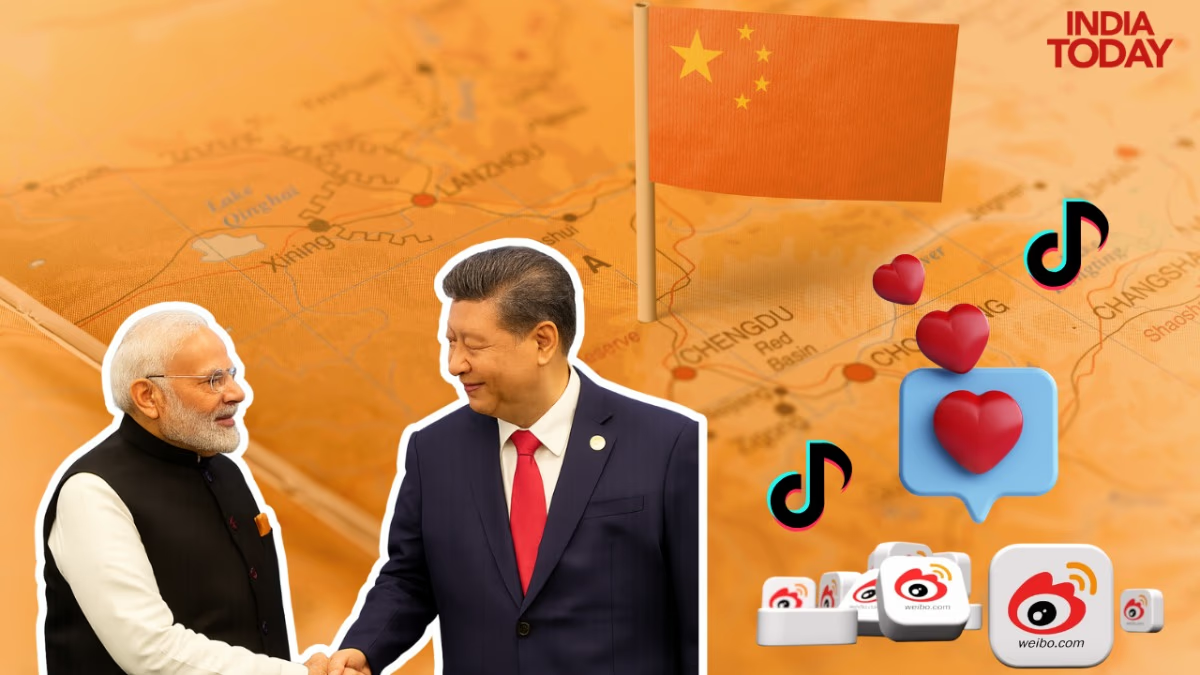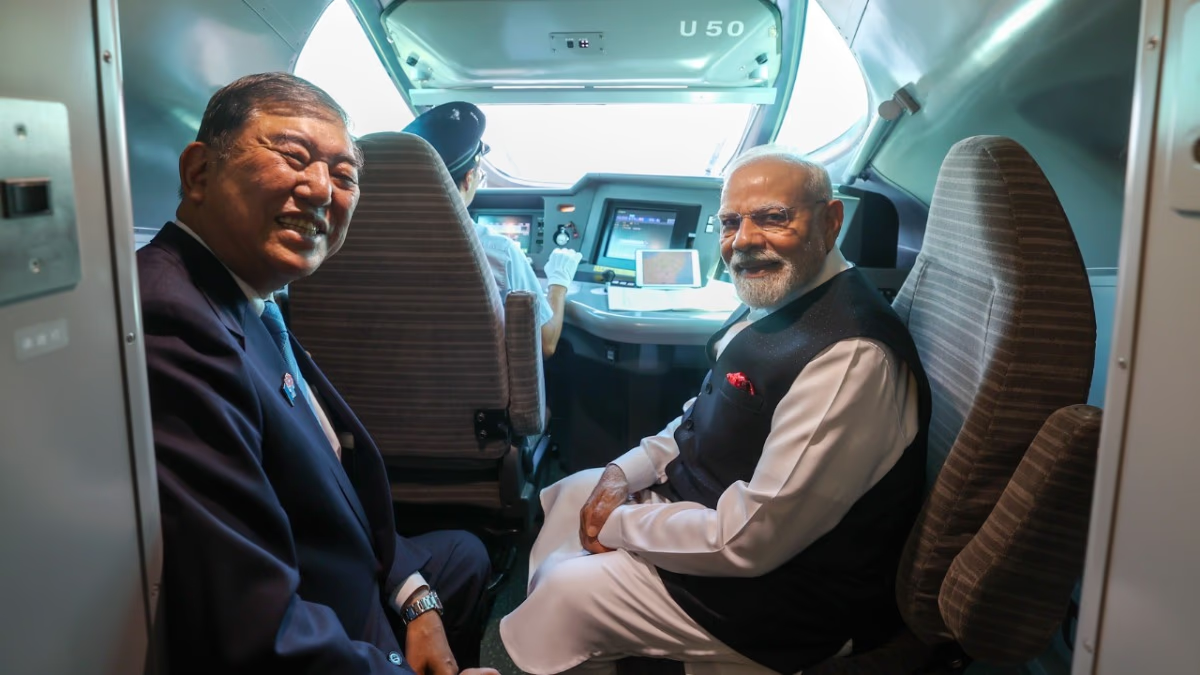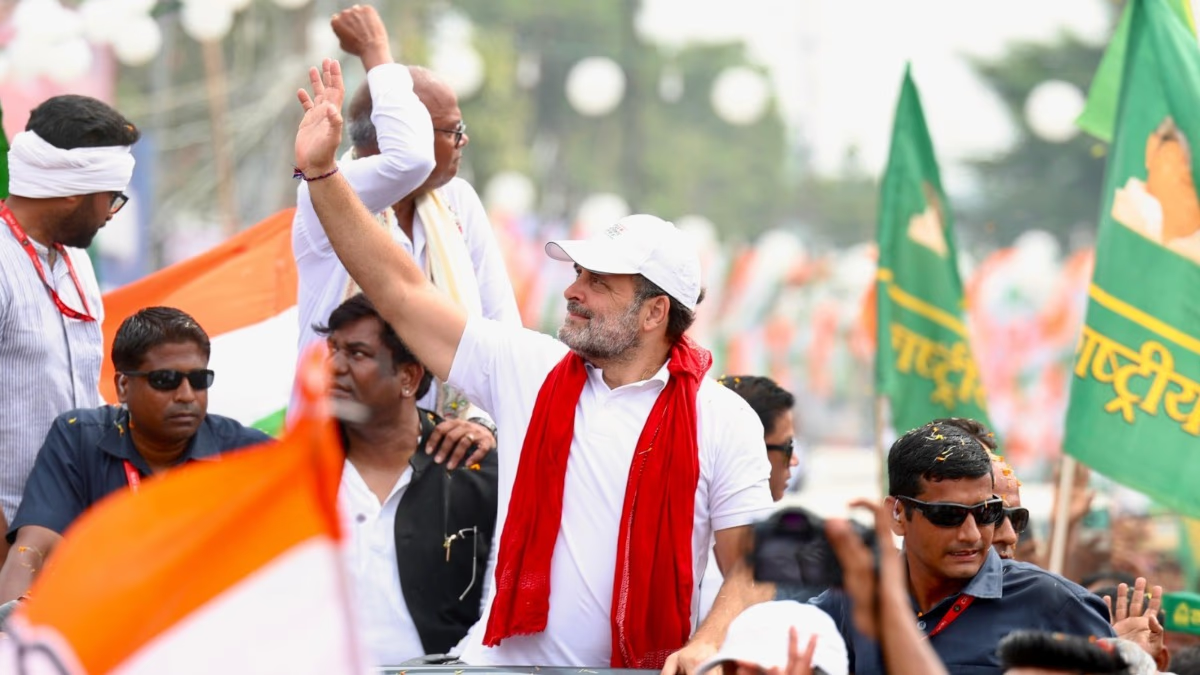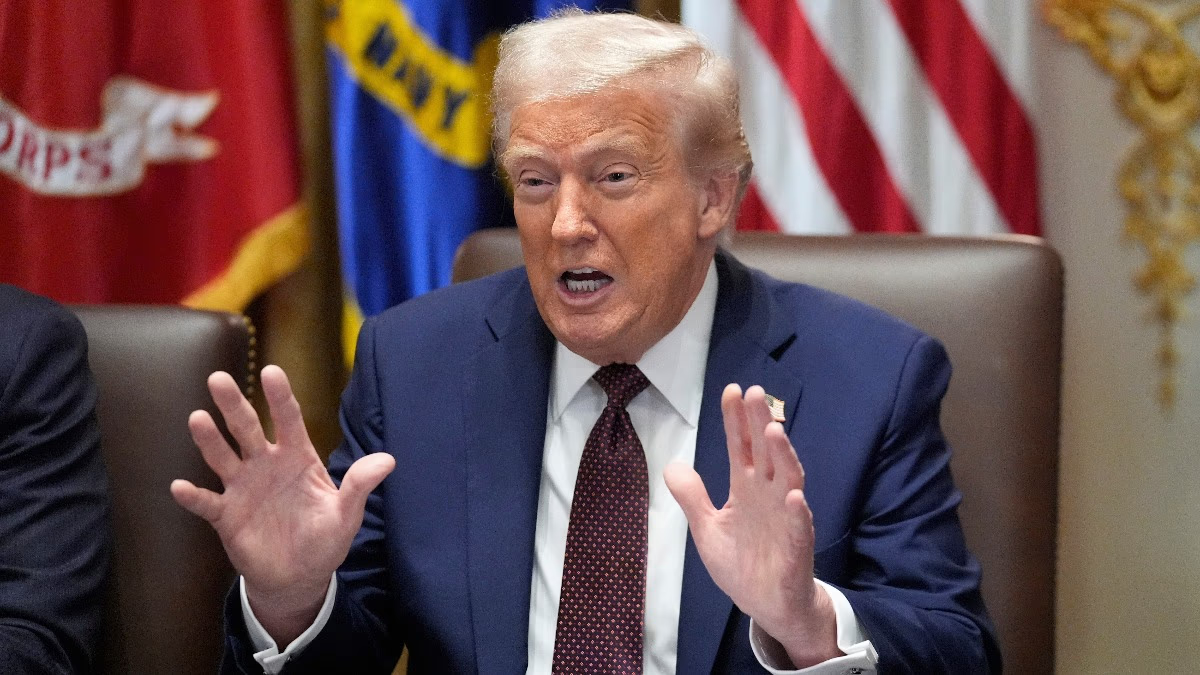As Prime Minister Narendra Modi embarks on his two-day trip to China, reactions on Chinese social media have been a fascinating blend of curiosity and critique. While many applaud Modi for his steadfast stance against American trade pressures, others express doubt about India and advocate for stronger ties with China.
Amid China's tightly managed government and social media, it becomes evident that balancing relationships with both China and the United States is no easy task for India. The U.S. sees New Delhi as an essential component of its Indo-Pacific strategy.
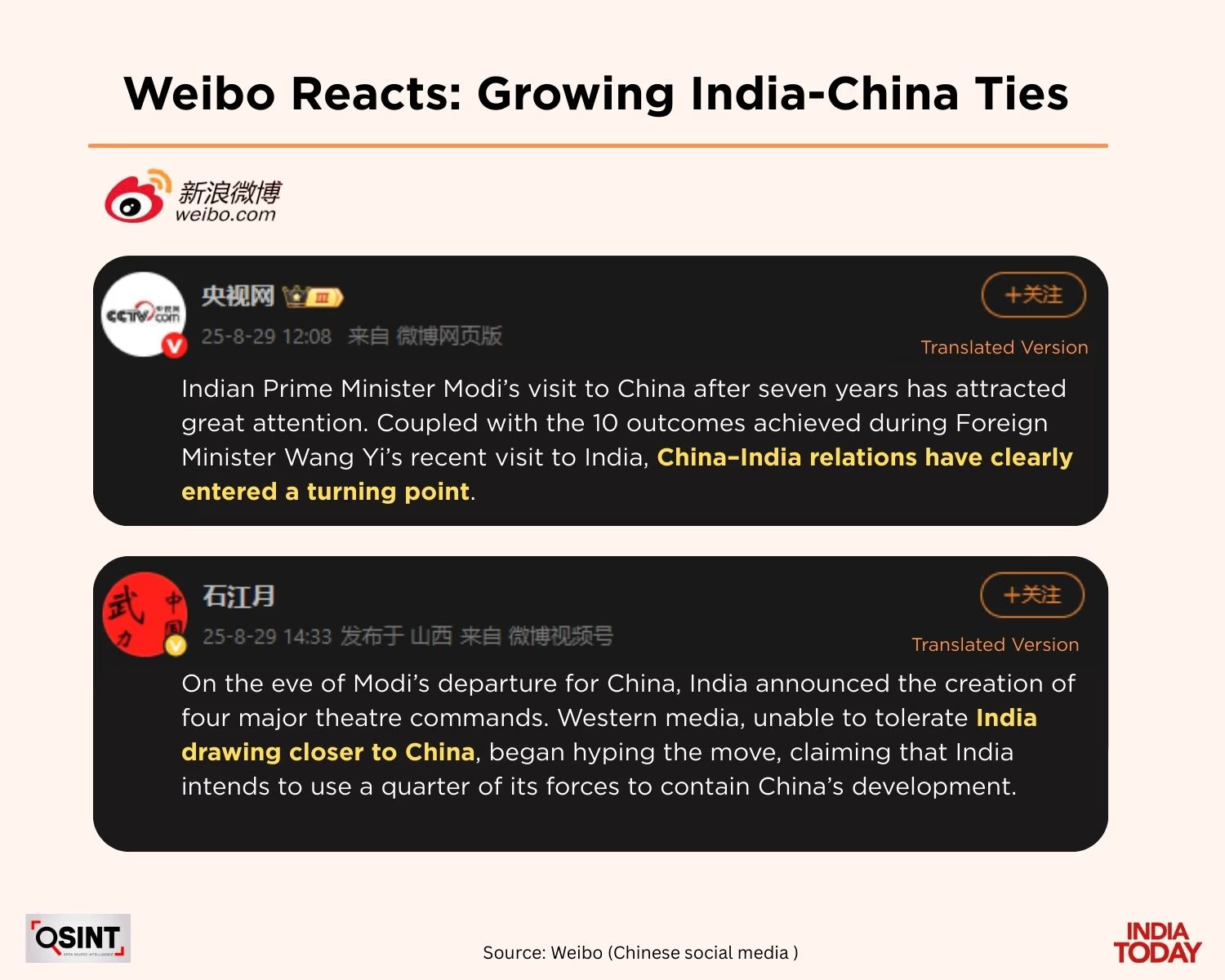
Source: aajtak
In reality, truly grasping public opinion in China is challenging due to the stringent online censorship imposed by the 'Great Firewall.' To decode the trends, India Today's Open-Source Intelligence (OSINT) team explored platforms like Weibo and Douyin (China's TikTok).
Praise for Modi's Resolve
The enthusiasm over Modi's visit is unmistakable across social media. A prominent Weibo post reads - 'After seven years, Indian Prime Minister Narendra Modi's visit to China has captured significant attention, heralding a new chapter in China-India relations.'
Prime Minister Modi will be in China from August 31 to September 1, participating in the Shanghai Cooperation Organization (SCO) summit in Tianjin.
Social media users particularly commended Modi's stance against U.S. tariffs - A Douyin video described, 'Modi's move is genuinely tough this time,' illustrating how Washington imposed a hefty 50% tariff on Indian goods.
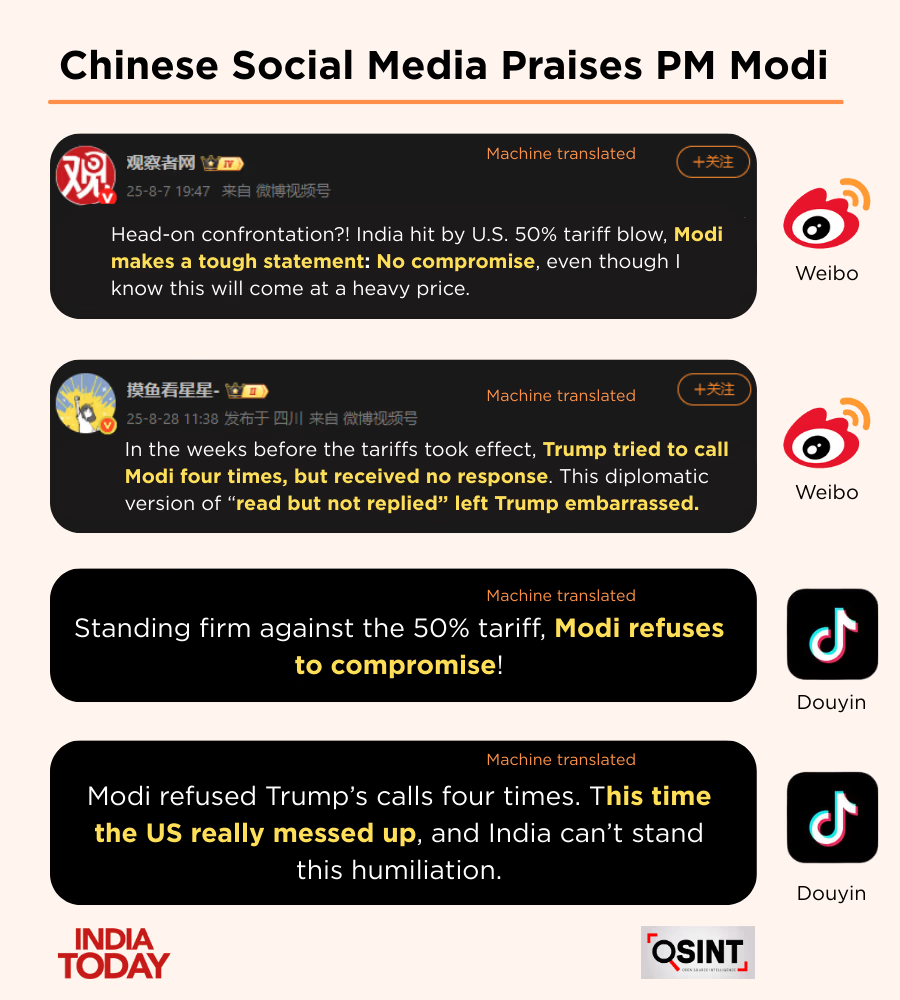
Source: aajtak
Another user questioned, 'Standing firm against a 50% tariff, Modi refused to compromise! Can India, like China, force America to yield?'
Reports also surfaced that Modi recently ignored four phone calls from Donald Trump, further enhancing his image. A Weibo post mentioned, 'Modi has shown an unusually firm stance this time.' Another Douyin user commented, 'Rejecting Trump's four calls, this time America truly erred, and India will not tolerate this insult.'
Chinese users also praised India's independent policies, such as sourcing cheap oil from Russia. A widely shared interview with Chinese scholar Gao Zhikai stated, 'Indians aren't fools; Americans should stop trying to dictate how India should behave!'
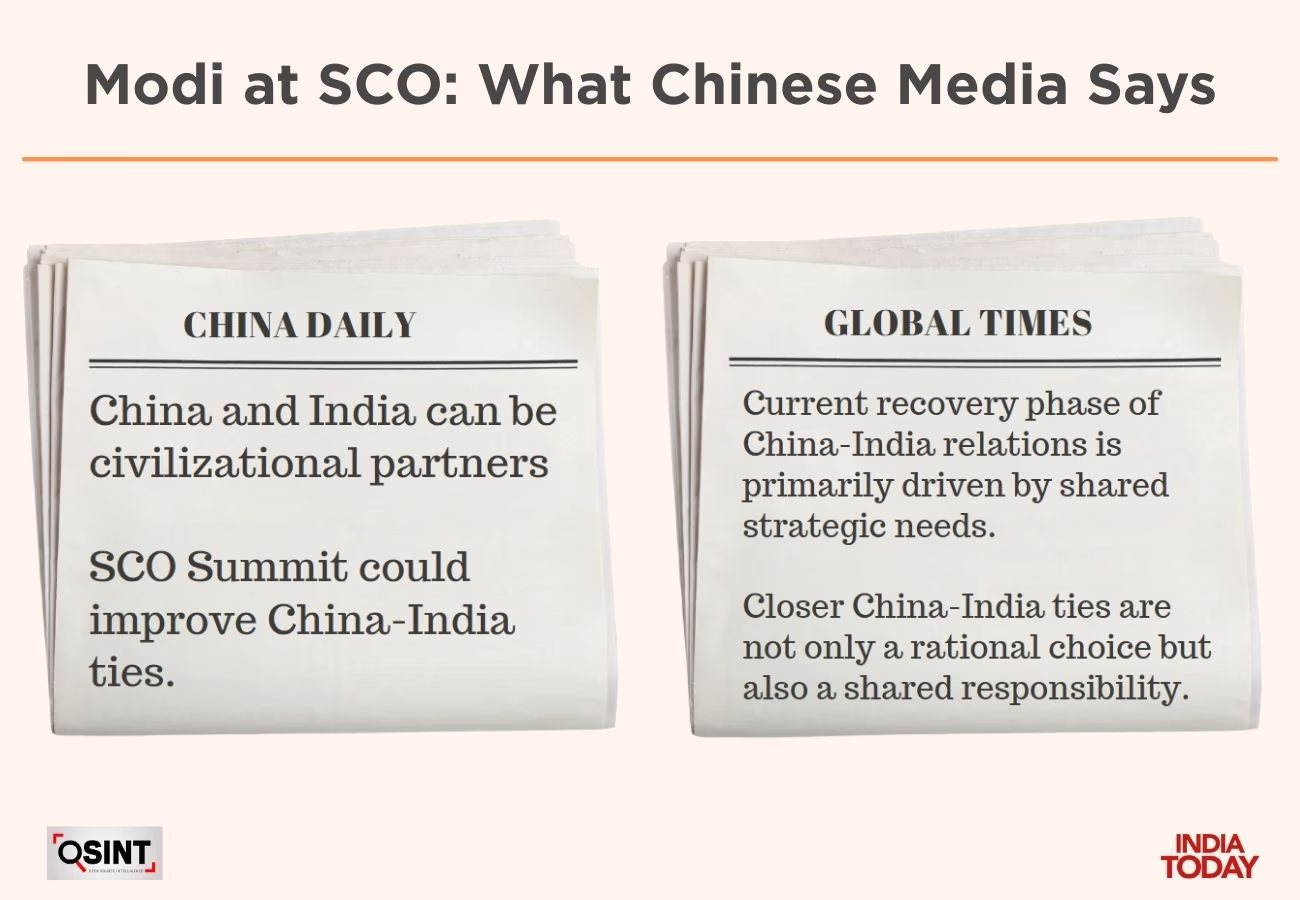
Source: aajtak
Rising Expectations
However, alongside the accolades, expectations have also surged. Many Chinese users suggested that Modi should attend the event on September 3 at Beijing's Tiananmen Square commemorating the 80th anniversary of the end of WWII following Japan's formal surrender.
A viral Weibo post pointed out, 'Have you noticed that almost all leaders attending the SCO Tianjin Summit will participate in this anti-Japanese victory commemoration, but Indian Prime Minister Narendra Modi is missing. What does this imply? It signifies that India truly doesn't wish to befriend China.'
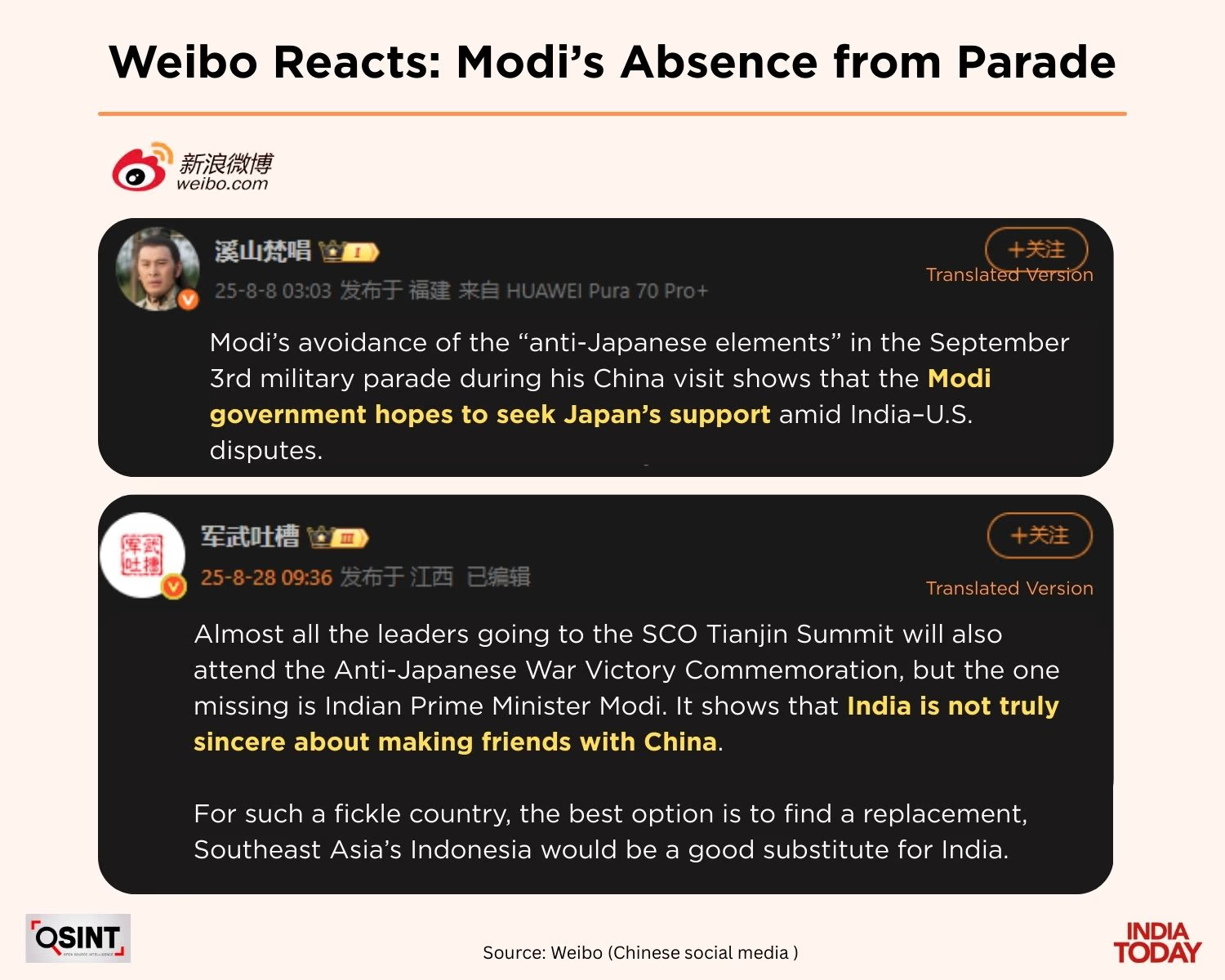
Source: aajtak
Renowned Chinese journalist Hu Xijin critiqued, suggesting that if Modi had stayed for the Beijing military parade, it might have been 'a significant gesture.'
Some users accused India of 'sitting on the fence' or maintaining neutrality. There was also discontent over Modi's visit to Japan immediately before coming to China and India's ongoing efforts to reduce industrial dependence on China.
Chinese international affairs scholar Professor Jin Canrong stated that the future trajectory of India-China relations hinges on two factors: whether Modi will attend the September 3 military parade and India's stance on the Belt and Road Initiative (BRI). India opposes it because it passes through PoK.
